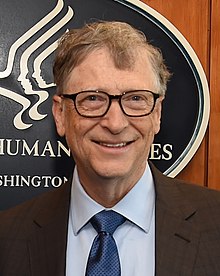LAD/Blog #22: Carnegie's Gospel of Wealth
LAD/Blog #22: Carnegie’s Gospel of Wealth
The “Gospel of Wealth,” by Andrew Carnegie, emphasizes how
the separation between the rich and poor has been beneficial. He references
Social Darwinism (survival of the fittest), saying “while the law may be
sometimes hard for the individual, it is best for the race, because it insures
the survival of the fittest in every department.” He says this is good, as it allows the best citizens to continue on. He also says people benefit greatly from the mass production of goods at lower prices, and the change leading
to the gap between the rich and poor allows for this system. He points out that
this leads to Castes, which, in his mind, aren’t necessarily bad. He later says
that there are three ways of distributing wealth: left to the families of descendants
(injudicious), bequeathed to the public (only a means to dispose of wealth), or
administered during the lives of its owners (ideal). He also believes that it
is smart to tax wealthy owners after they have died, but believes in
laissez-faire economics. He says a man of wealth should, “set an example of
modest, unostentatious living, shunning display or extravagance; to provide
moderately for the legitimate wants of those dependent upon him; and after
doing so to consider all surplus revenues which come to him simply as trust
funds.” He ends his piece saying, “The man who dies thus rich dies disgraced,”
proving that he supported the wealthy giving back, setting the stage for modern
day philanthropists.

Andrew Carnegie's "Gospel of Wealth"

Bill Gates (synthesis):
Bill Gates is seen as a modern day philanthropist, donating
$27 billion to various charities, including the World Health Organization and
UNICEF. This fits what Carnegie spoke about in his Gospel of Wealth, as he
preached the wealthy should give back.
Comments
Post a Comment